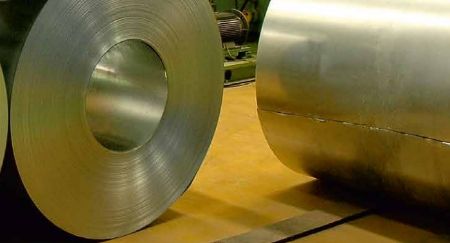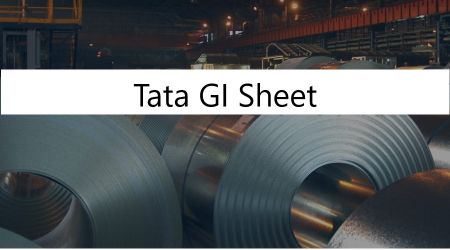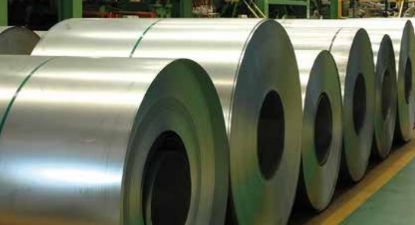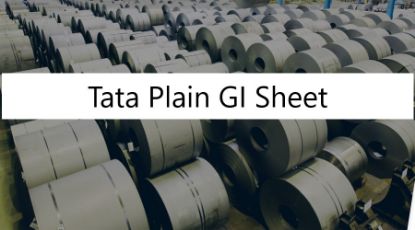GI Sheet
GI stands for Galvanized Iron. It is a steel that offers better corrosion resistance, formability, heat reflectivity, paint ability, and environment friendliness. It is because of these features that GI Sheets are used extensively in any given HVAC (Heating Ventilation Air Conditioning) project. The entire duct system is made from different gauges of GI sheet. Whether it is rectangular ducting, or oval ducting, or round ducting, different gauges of GI sheets are used to fabricate these ducts. While rectangular ducts can be either made at the site or fabricated in the factory, the oval and round ducts are factory fabricated. If the airflow volume in cubic feet per minute (CFM) is more, then, usually 22 gauge (0.8mm thickness) of GI sheet is used to fabricate the ducts. Generally, 24 gauge (0.6mm thickness) and 22 gauge (0.8mm thickness) of GI sheets are used to fabricate ducts in an HVAC system. However, sometimes, depending on the pressure and airflow levels, 20 gauge (1mm thickness), 18 gauge (1.2mm thickness), 16 gauge (1.6mm thickness) of GI sheets are also used. Typically, GI sheets for HVAC applications come in either 8 feet x 3 feet size or 8 feet x 4 feet size. A standard GI sheet comes pre coated with zinc. The zinc coating on a GI sheet can vary from 70 GSM (Grams per Square Meter) to 350 GSM. However, for HVAC applications, 80 GSM or 120 GSM of zinc coating are the preferred choices. The zinc coating helps in preventing rusting on the GI plain sheets. Besides the ductwork, the GI sheets are also used in air handling units, tube axial fans, inline fans, dampers, louvers, air washers, air scrubbers, and a multitude of several other products that are used extensively in HVAC projects. Therefore, use of a GI sheet in any given HVAC project is massive. There are several manufacturers of GI sheets in India. However, Tata GI Sheet and JSW GI sheet (Jindal GI Sheet) are most frequently used in the HVAC industry. The price is calculated based on the weight of the GI sheet. Therefore, higher the gauge (thickness in mm), higher the weight of a GI sheet. The price per KG of a GI sheet fluctuates as steel price fluctuates. Therefore, it is always advisable to get the correct price per KG of a GI sheet before estimating the total value of any given HVAC project.




